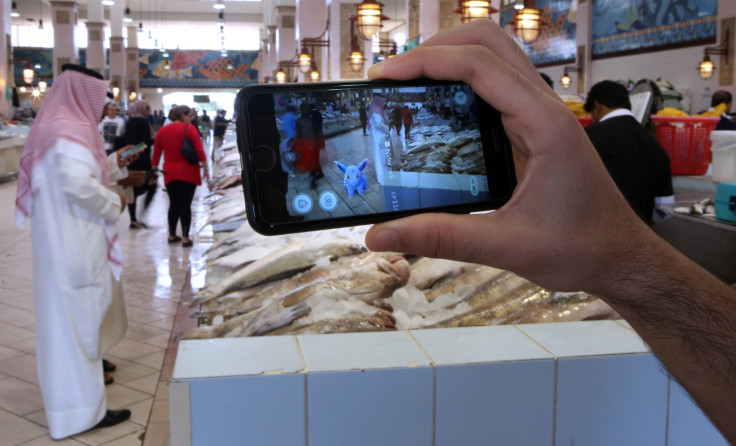Gamers in the Middle East warned of security and personal dangers of playing Pokemon Go
Egyptian institution says gamers act like 'drunkards' and UAE warns of Pokemon malware.

As Pokémon Go continues its global rollout, the augmented reality (AR) smartphone game seems to have captured the hearts of millions of people from around the world. As people eagerly explore their surroundings to try and capture their own beloved digital critters using their smartphones, the game has shot to the top of mobile gaming charts, sent Nintendo's stock price surging and inspired a seemingly endless series of bizarre stories.
But some Middle East nations have warned players about the security dangers that come with playing the incredibly addictive mobile game.
Kuwait's Interior Ministry issue a statement on 14 July cautioning players against taking pictures of any local government landmarks, such as the Kuwaiti Emir's palace, military bases, oil facilities and security sensitive areas. The also warned users not to try and catch a stray Charmander or Goldeen in mosques, malls and shopping centres.
"The danger in dealing with this game is that it involves the user photographing areas nearby with… smartphones which transfer the pictures of the sites to third parties," Kuwait interior ministry undersecretary Suleiman al-Fahd said, Reuters reports. "The interior ministry has informed security men to show zero tolerance to anyone approaching such prohibited sites, deliberately or not."
He also added that "no excuses will be accepted by anyone claiming ignorance of the law".
Although Pokémon Go has yet to be launched in the Middle East, many local users have already downloaded the app using a VPN connection or a third-party site and have begun capturing the little monsters at numerous sites in the region, such as the pyramids in Egypt and al-Aqsa mosque in Jerusalem.
People out here in Egypt catching Pokémon at the pyramids pic.twitter.com/DX3fSNjKOv
— Eman Youssef (@emanyxo) July 13, 2016
The United Arab Emirates (UAE) has also warned its residents about the possible cybersecurity implications of using unofficial sources to get their hands on a copy of the game before its official rollout in the Gulf.
"Criminals can use the app's geolocation features to target the victims. Those features alongside the phone's camera make users vulnerable to hackers' attacks," the UAE's Telecommunications Regulatory Authority (TRA) said in a statement, according to the National. The TRA also advised users not to switch the app on while at home or when in any other private areas as well.
According to Mohamed Al Zarooni, TRA director of policy and programs, mobile games that depend on geopositioning technology and tap into one's smartphone camera can put a user's privacy in jeopardy. Installing the game's from an unofficial source, also make the smartphone vulnerable to malicious fake software, malware and phishing scams.
Pokémon danger
"The Pokémon game is a real craze because it blends imagination with reality," said popular Egyptian journalist and TV host Lamis El-Hadidi as she tried to capture a pokémon while hosting her show, This is the Capital, Gulf News reports. "This game has driven the world crazy. It is not a mere fun. It is dangerous because of the deep concentration it requires that can cause accidents."
Egypt's top Islamic institution, Al-Azhar, however, has reportedly slammed the Pokémon Go as "harmful media" that "makes people look like drunkards".
هوس لعبة البوكيمون يصل الى باØات المسجد الاقصى المبارك
Posted by ‎Ramallah News - رام الله الإخباري‎ on Thursday, July 14, 2016
"This game makes people look like drunkards in the streets and on the roads while their eyes are glued to the mobile screens, leading them to the location of the imaginary pokémon in the hope of catching it," said deputy head of Al-Azhar, Abbas Shuman. "Will we find some lunatics walk into mosques, churches, prisons and military units in search of the missing [pokémon]. Will people neglect their work and earning their living and devote themselves instead to hunting for pokémon?"
Back in 2001, Egypt's Grand Mufti at the time, Nasr Fareed, issued a fatwa against the Pokémon franchise saying it features "Zionist and Masonic" symbols and Darwinian ideas, teaches kids about gambling and instills belief "fictions that have no basis and supernatural [creatures] that don't exist in nature".
© Copyright IBTimes 2025. All rights reserved.


















